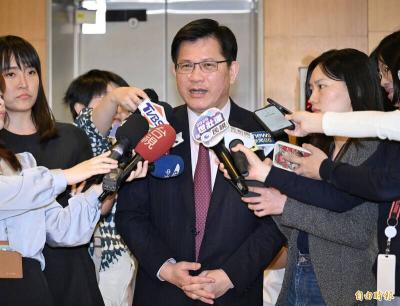Taiwan should adopt a pragmatic strategy to its participation in ASEAN and China should stop intervening in Taiwan’s regional economic cooperation with other countries, Vice President Vincent Siew (蕭萬長) said yesterday.
The country’s participation in ASEAN would create a win-win situation for Taiwan and the organization in pushing peace and stability in the region and economic development, he said.
“Regional economic integration has become a global trend and Taiwan must participate in ASEAN with a pragmatic attitude,” Siew said in a speech delivered at a forum held on the issue of free-trade agreements (FTA) between Taiwan and East Asian countries in Taipei.
ASEAN, established in 1967, aims to accelerate economic growth, social progress and cultural development in the region and to promote regional peace. It comprises Indonesia, the Philippines, Malaysia, Brunei, Singapore, Thailand, Vietnam, Laos, Cambodia and Myanmar. Arguing that a Taiwan-ASEAN free trade pact would be beneficial to both sides, Siew said that Taiwan ranks as the third largest source of foreign investment in Thailand and Cambodia and the largest source in Vietnam, with investment amounting to US$1.8 billion last year alone, up 630 percent over the previous year. Taiwanese investment in Singapore last year reached US$1.2 billion, up 46 percent, with the figure for the Philippines rising 878 percent to US$200 million, he added.
All these statistics clearly illustrate that Taiwan has brought technological development and job opportunities to the region and that the importance of this bilateral cooperation has been increasing significantly, Siew said.
Siew said Taiwan has expressed many times its wish to join ASEAN, but was rejected because of obstructions from China. He urged the Chinese government to soften its stance.
“China should change its rigid policies and stop interfering in Taiwan’s participation in regional economic cooperation,” he said.
Siew said the government would improve its relations with China and try to sign an FTA with China, seeking to reduce obstructions when negotiating with ASEAN members in the future.
Siew said Taiwan’s GDP could get a significant boost if it were allowed to join the ASEAN plus three (China, Japan and South Korea), or if a cross-strait FTA were inked. He said that Taiwan’s economy would suffer greatly if the country fails to join ASEAN before it expands into ASEAN plus six, with India, Australia and New Zealand also joining.
Siew stressed that Taiwan would use its geographical and transportation advantages to promote the development of peace and stability in the region and at the same time maintain its practical approach to achieving greater economic integration with the region to the benefit of all parties involved.
A former ASEAN secretary-general, Rodolfo Severino, suggested in the forum that Taiwan should join the ASEAN as an “economic entity,” rather than as a sovereign country. The economic relations between Taiwan and Southeast Asian countries were complicated, and ASEAN was also pondering on how to include both China and Taiwan in the organization, he said.
Severino said Southeast Asian countries understood the economic strength of Taiwan, and wanted to strengthen economic ties. However, Taiwan would not be able to join ASEAN if the country failed to adopt a pragmatic strategy.
ADDITIONAL REPORTING BY CNA

Taiwan would welcome the return of Honduras as a diplomatic ally if its next president decides to make such a move, Minister of Foreign Affairs Lin Chia-lung (林佳龍) said yesterday. “Of course, we would welcome Honduras if they want to restore diplomatic ties with Taiwan after their elections,” Lin said at a meeting of the legislature’s Foreign Affairs and National Defense Committee, when asked to comment on statements made by two of the three Honduran presidential candidates during the presidential campaign in the Central American country. Taiwan is paying close attention to the region as a whole in the wake of a

Chinese Nationalist Party (KMT) Chairman Eric Chu (朱立倫), spokeswoman Yang Chih-yu (楊智伃) and Legislator Hsieh Lung-chieh (謝龍介) would be summoned by police for questioning for leading an illegal assembly on Thursday evening last week, Minister of the Interior Liu Shyh-fang (劉世芳) said today. The three KMT officials led an assembly outside the Taipei City Prosecutors’ Office, a restricted area where public assembly is not allowed, protesting the questioning of several KMT staff and searches of KMT headquarters and offices in a recall petition forgery case. Chu, Yang and Hsieh are all suspected of contravening the Assembly and Parade Act (集會遊行法) by holding

President William Lai (賴清德) has appointed former vice president Chen Chien-jen (陳建仁) to attend the late Pope Francis’ funeral at the Vatican City on Saturday on his behalf, the Ministry of Foreign Affairs said today. The Holy See announced Francis’ funeral would take place on Saturday at 10am in St Peter’s Square. The ministry expressed condolences over Francis’ passing and said that Chen would represent Taiwan at the funeral and offer condolences in person. Taiwan and the Vatican have a long-standing and close diplomatic relationship, the ministry said. Both sides agreed to have Chen represent Taiwan at the funeral, given his Catholic identity and

Taiwan would welcome the return of Honduras as a diplomatic ally if the next president of that country decides to make such a move, Minister of Foreign Affairs Lin Chia-lung (林佳龍) said today. “We would welcome Honduras if they want to restore diplomatic ties with Taiwan after their elections,” Lin said during a legislative hearing. At the same time, Taiwan is paying close attention to the Central American region as a whole, in the wake of a visit there earlier this year by US Secretary of State Marco Rubio, Lin said. Rubio visited Panama, El Salvador, Costa Rica and Guatemala, during which he